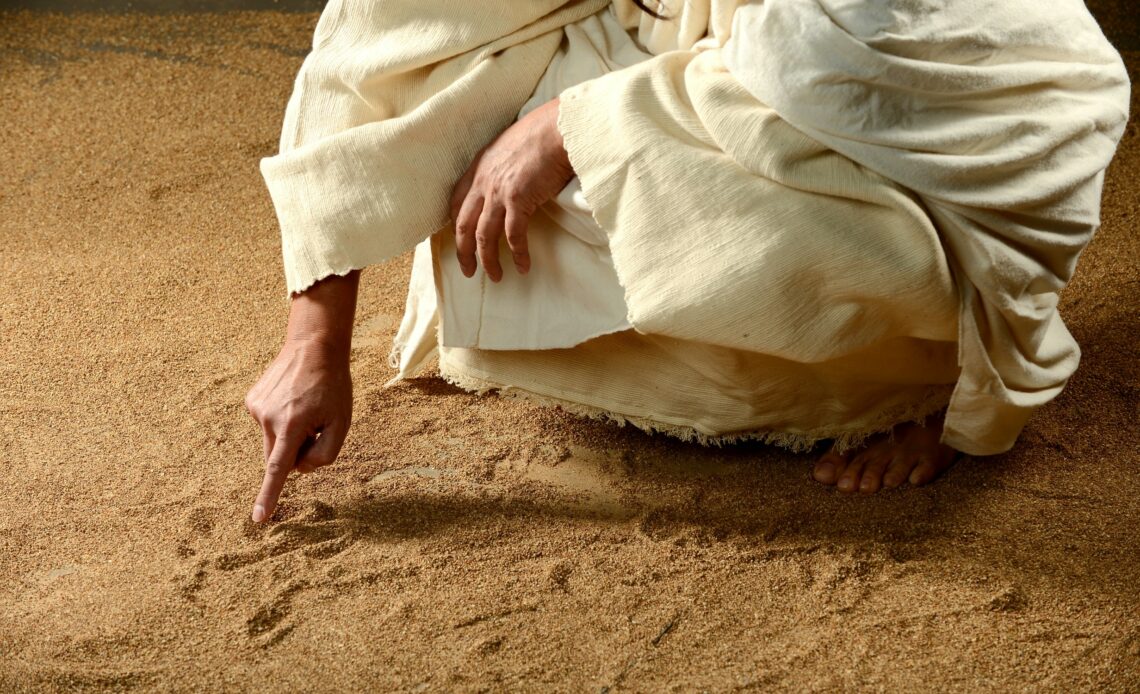What is the significance of Christ as our Great High Priest? If you were to read the book of Hebrews, you would see that Christ being the Great High Priest is a major theme. But what does that mean for us? Why is that important? In what ways should that change our lives or our dealings with God? It can be easy for someone to read through a book like Hebrews and read that Christ is our Great High Priest and not make much of it, other than storing it as knowledge that has little to no effect on his life. However, the implications of Christ as our Great High Priest are far reaching, and surely good news can be had for those who understand its consequences.
The history of the priesthood
The history of the priesthood is explained in great detail in the book of Hebrews. It tells us about a man named Melchizedek, as well as the Aaronic priesthood that was formed during the time of Moses. The first priesthood was before the law, and the second was based around the law. In the case of the first priesthood, no flaws are mentioned. In the case of the second, problems are scattered throughout its history. In the book of Hebrews, Christ is linked to the first priesthood, that of Melchizedek. Nevertheless, the office of Christ can be explained well by taking a look at both the priesthood of Melchizedek and the Aaronic priesthood.
Aaronic priesthood
1) The first point of interest is that when someone was anointed as a priest, it was because it was God’s choosing. People did not just make themselves into priests if they so chose. Rather, it was God’s choice. (Num. 3:3)
2) The high priest was the one who would go before God and offer sacrifices to God for the people. (Ex. 29:10-19)
3) The high priest presented offerings before the Lord so the people would be accepted by God. (Lev. 8:25-27)
4) The high priest had to be able to prove that he was of the proper lineage before he was able to serve as a priest. (Ezra 2:62)
5) The priest had to keep the incense burning within the temple before the Lord at all times. (Ex. 30:7-8)
6) The priest was to offer the first fruits of the harvest for the people (Lev. 23:10-11)
7) The priests were responsible for pronouncing blessings on the people. (Num. 6:23-27)
8) Priests were responsible for purifying the unclean. (Lev. 15:30-31)
9) Priests were responsible for teaching the law of God to the people. (Mal. 2:7)
10) Priests would encourage the people prior to times of war. (Deut. 20:1-4)
Needless to say, the priests in the Old Testament had a lot of responsibility. However, in it all, you can see that Christ performs all of these same responsibilities perfectly. The Father chose Christ and anointed Him to be a priest (1). Jesus sacrificed Himself for the people and made an offering for sin (2, 3). Since Jesus was after the order of Melchizedek and a part of a greater priesthood, He did not need to be from the line of Aaron (4). Jesus offers continual prayers to the Father at the Father’s right hand (5). After Jesus rose from the dead and was given a glorified body, He was accepted by the Father and declared to be the first fruits of the harvest that was to come (6). Jesus continually blesses His people through His death and through His life (7). Jesus purifies those who are unclean (8). Jesus teaches His sheep through His Word (9). Jesus encourages believers in the midst of their battles through His Word (10).
Melchizedek’s priesthood
In the case of Melchizedek, his priesthood is shrouded with a little more mystery. Some would even think that this was actually a pre-incarnate form of Jesus Christ (in other words, that Melchizedek was actually Jesus). All that can be known for sure is that this person was declared to be a man named Melchizedek and that he was a priest. Along with these facts, we also know that this man was from a place known as Salem. Here’s what we can see concerning the office of Melchizedek:
1) Melchizedek blessed Abraham. (Heb. 1:1)
2) Melchizedek means king of righteousness. (Heb. 7:2)
3) Salem, the city where Melchizedek was from, means peace. (Heb. 7:2)
4) The Scriptures do not record an end to Melchizedek’s priesthood, but rather it is said that he continues as a priest forever. (Heb. 7:3)
5) Melchizedek was superior to the line of Abraham, from which the Aaronic priesthood came (thus, Melchizedek’s priesthood was superior to Aaron’s). (Heb. 7:7)
In Christ’s office as Great High Priest, it can be seen that He blesses his followers (1). Jesus Christ is the true King of righteousness (2). Jesus is also One Who brings peace to His people (3). Christ’s office as Great High Priest is an enduring and eternal one (4). Finally, Christ’s office is superior to that of Aaron’s (5).
Application
So what does all of this mean for the believer? Christ ever lives to make intercession for His people. The high priests were for their people and lived to serve their people and unite them to God. This ministry is where Jesus Christ remains. He continues to offer up prayers to the Father on behalf of His followers. His sacrifice was once and for all and is final. He will never be removed from His priestly role but rather will remain in it throughout eternity. His work is accomplished, and the believer can find his rest in the priesthood of Jesus.
Final prayer
Father, I thank You for the work of Christ in His priestly role. Thank You, Jesus, for continuing to plead for me and making me acceptable before the Father. In Jesus’ name, Amen.


